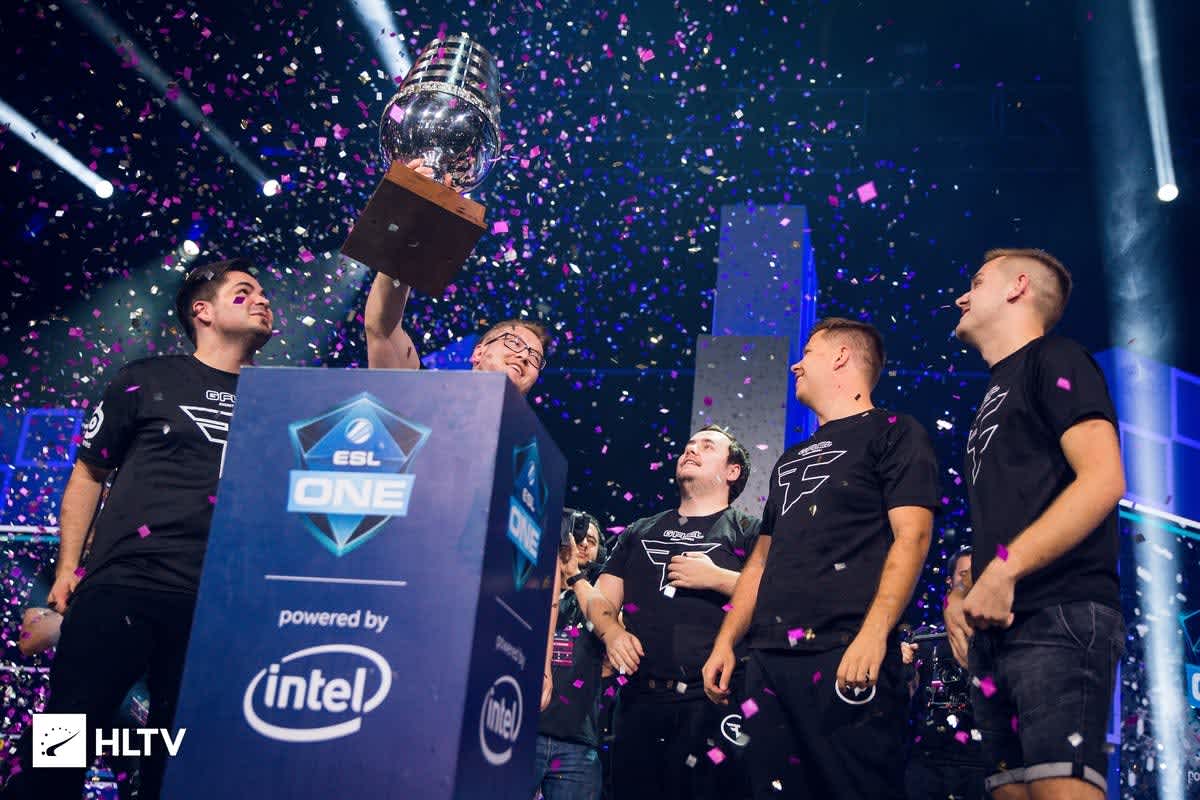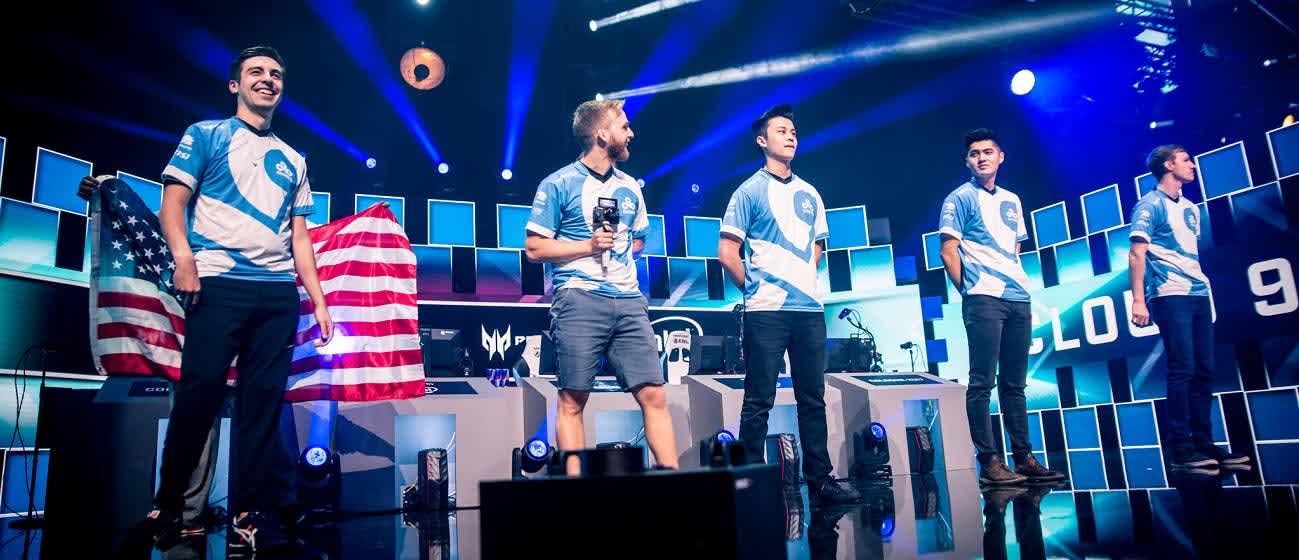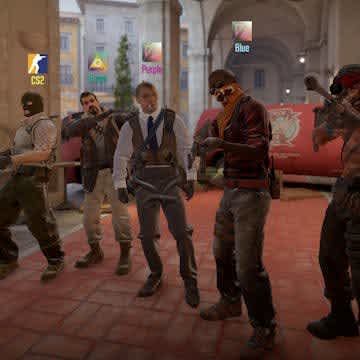The Story of the Intel Grand Slam So Far
FaZe Clan almost got their hands on a pretty nifty bonus prize had they managed to win at Cologne as part of the Intel Grand Slam competition: win four out of ten premiere ESL or DreamHack-branded events and your players get an extra million dollars to celebrate their victory. The race has been on ever since last year’s Cologne event with six different teams making their mark on the field since then. It’s been ten events since the challenge was brought forth, and some of these old victories are close to fading away into the annals of history.
A triumphant assimilation
If we were to look at it in a cynical way, the whole idea of the Intel Grand Slam is really nothing more than a marketing ploy. But oh boy, what a great way it is to create an overarching narrative for a set of individual tournaments: announced last June, the competitors of the ESL/DreamHack circuit would be eligible for a seven-figure sum if they manage to win four out of ten $200 000+ tournaments hosted under either banner – the prize would go directly to the players.
If a team has three wins and they get stopped in the final, the winner gets a $100 000 bonus for their role as a “spoiler”. It all began with last year’s ESL One Cologne event, and no one managed to get within striking distance of the grand prize until now – but with FaZe Clan’s win at Belo Horizonte, they’ve picked up three out of the four titles they need. Even if they were to fail in Cologne, the team would have another shot at the seven-figure bonus at DreamHack Masters Stockholm. It’s been a long journey: who knows whether this is the endgame or merely the second act?

Four for four
It all began in the cathedral of Counter-Strike in 2017 – however, that year’s Cologne event hardly bears any resemblance to this year’s edition. The roster and org changes are striking: FaZe still featured kioShiMa and allu, olofmeister and dennis were wearing Fnatic jerseys, Immortals hasn’t yet self-combusted, mouz had denis and loWel in the roster, Guardian was AWPing for Na’Vi, Xizt was a Ninja in his nighties, Rush was on OpTic alongside NAF and Tarik, jdm and Stanislaw were playing in Team Liquid, VP hasn’t yet made a line-up change and FalleN’s then-SK team still had felps and TACO in an active role. Not only that, but the tournament featured a best-of-one Swiss system in the group stage which led to quite a few upsets as per usual for the format. SK barely squeaked into the arena with a 3-2 scoreline but only dropped a single map in the playoffs, winning the grand final in dominant fashion against Cloud9 – though their win was marred by a slight controversy over the Brazilians using technical timeouts as tactical ones, that only resulted in a prize deduction rather than any more serious consequence.
This win no longer counts towards the Grand Slam, just like G2’s only appearance on the bracket thanks to their triumph at DreamHack Masters Malmö in early September in what seems like a fairly stacked field in retrospect: while smaller names like Renegades, EnVyUs, North and B.O.O.T-dream[S]cape were also present, you’ve also had the new-look FaZe with olofmeister and Guardian, the eventual major winner roster of Cloud9, Fnatic with Golden, Gambit as the winners of PGL Krakow, a Na’Vi with s1mple but still featuring seized plus the mouz roster with oskar and STYKO that would later become one of the best teams in the scene. In the end, they went out before the playoffs alongside FaZe while G2 – featuring shox, body, NBK, kennyS and apex at the time – triumphed over Immortals, Fnatic and EnVyUs in the groups, then managed to take down SK in three maps then swept the semis against NiP and the final against North, also only dropping a single map throughout the whole event. They haven’t managed to win another IGS-compatible title since then.
ESL One New York was one of the smaller events with only eight teams – six of which were invited, similarly to Belo Horizonte in 2018 – where FaZe haven’t dropped a single map as part of a series of LAN wins that seemed like the start of an era at the time. It took the famous “NiP magic” to stop them at Oakland where they easily topped their group and breezed past Cloud9 in the semi-finals, only to shockingly lose a best-of-five series to the Ninjas who have also managed to take down SK in the previous round of the playoffs. The international roster would not win another relevant event until Sydney while NiP would join G2 alongside those who are stuck on one out of four and are very close to being reset. SK Gaming became the first two-time winners after winning the finals of ESL Pro League Season 6 over FaZe, marking perhaps the high point of this particular rivalry.

A turning of the tides
By the time Katowice rolled around, Astralis were almost there, but not quite, still getting to grips with the integration of Magisk after Kjaerbye’s surprise departure. The rot at SK truly set in as they failed to make it of the groups, and despite Fnatic’s unexpected win over FaZe in the upper bracket final, they were everyone’s favorites to win at the Spodek. A classic five-map barnburner and some vintage plays from flusha on the fifth map followed, denying them once again in the latter stages of the prestigious tournament While Golden was widely credited with providing some structure in the Fnatic line-up, this title win was the beginning of the end for him, paving the way for some drama and inexplicable changes in the team until his recent removal from the active roster.
FaZe also couldn’t strike back at Marseille as a new-look Astralis completely demolished the field, beating karrigan and co. 2-0 in the quarter-finals and winning every map in the rest of the playoff stages as well over Fnatic and Na’Vi. IEM Sydney would prove to be a real clash of the titans as the two were joined by mousesports in the top three – alongside Tyloo after a very impressive group-stage performance – leading to a shocking 3-0 win by FaZe over the Danes. It wasn’t as one-sided as the scoreline may suggest: the first two maps went to overtime and the third finished 16-14. They would keep hoovering up the titles between each other: Astralis won the Pro League Season 7 finals in convincing fashion – once again 2-0-ing FaZe and only dropping a single map throughout the whole event, a 14-16 Mirage to Liquid in the grand finals – while FaZe won their third at Belo Horizonte as part of a fairly diminished eight-team field.
FaZe may be in pole position for now but the Danes won two out of the four events they’ve attended since the inclusion of Magisk and also made the final at a third event. Both teams made the semi-finals at Cologne, promising a fascinating contest at the end of the tournament – shockingly, neither of them made it through the penultimate round. In many ways, this felt like the real crescendo of IGS Season 1: FaZe only have one event left before their New York win from last year ceases to count, and if Astralis managed to win at Cologne, they would have also been gunning for their fourth in Stockholm. After that, however, quite a few LAN events will clash with one another once again and Astralis won’t be present at ESL One New York at the end of September. If we don’t have a victor by then, FaZe will be knocked back to two wins by that time, likely robbing us from a photo finish. They currently have three titles and three second-place finishes in the circuit: it would be a shame if they went gently into the night.










